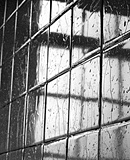All Nonfiction
- Bullying
- Books
- Academic
- Author Interviews
- Celebrity interviews
- College Articles
- College Essays
- Educator of the Year
- Heroes
- Interviews
- Memoir
- Personal Experience
- Sports
- Travel & Culture
All Opinions
- Bullying
- Current Events / Politics
- Discrimination
- Drugs / Alcohol / Smoking
- Entertainment / Celebrities
- Environment
- Love / Relationships
- Movies / Music / TV
- Pop Culture / Trends
- School / College
- Social Issues / Civics
- Spirituality / Religion
- Sports / Hobbies
All Hot Topics
- Bullying
- Community Service
- Environment
- Health
- Letters to the Editor
- Pride & Prejudice
- What Matters
- Back
Summer Guide
- Program Links
- Program Reviews
- Back
College Guide
- College Links
- College Reviews
- College Essays
- College Articles
- Back
I am a confused American.
Throughout my childhood, my hispanic background and my American upbringing tugged on each side of me, neglecting my Chinese background and fighting for prominence. Language barriers, assumptions, and stereotypes changed the way I felt about my heritage.
Never fully integrated into either culture, I struggled to find ways to blend them together. My hair was the most prominent feature that made me stand out. Having curly head of hair in a sea of straight haired girls used to make me feel lonely. Now it’s one of the only ways I feel like I can identify as Latina. Every now and then I refer back to the times when my hair was my insecurity instead of my strength.
“Why can’t I wear my hair curly instead of straightening every week?”
“Because I don’t want you walking around with puffy hair! Besides, you look nice with straight hair.”
When I would wear my hair curly, people gave me compliments and asked why I didn’t wear my hair curly more often. People were often perplexed at the fact that my hair was curly when wet, that I couldn’t brush my hair, or that I couldn’t really wear hats. Once my hair went up into a ponytail, it had a hard time going back down.
Twice a year, it was time for my haircut at the Dominican salon. I hated going - most of the time I felt like an outcast. Bachata and reggaeton playing throughout the salon and the smell of burning hair stains my memories of my straight-hair days. I spent hours there, with nothing but my iPod to keep me company. Not being able to speak Spanish surprised many of the hairdressers, since my mother knew it so well. After 5 hours, we would leave the salon and my mother would tell me how pretty my hair looked. She was obsessed with straight hair - chemical straighteners, keratin treatments, and flat irons kept her happy. Even the residual heat damage could do nothing to stop her.
You can imagine how she took it when my sister and I decided to go natural and forgo our blow dryers.
“What do you mean you aren’t straightening your hair anymore? Do you want to go into public with your frizzy, mop-like hair?”
I was tired of spending two hours every weekend under the blow dryer heat. I was tired of the heat damage. I was tired of avoiding water in fear of my hair returning to its natural state. I was tired of feeling out of control when it came to my appearance.
I was tired of feeling unhappy with myself.
Even with the progress of my hair insecurities, I still felt conflicted. I was taking AP Spanish and couldn’t practice at home without the fear of being laughed at or being called a gringa.
My lack of Spanish-speaking skills made me an outcast when I was with other Hispanic students. I didn’t listen to Spanish music and I didn’t know how to dance salsa or bachata. I felt like I didn’t belong to either culture: I was too Americanized for the Latino community and not white enough to fit in at school. I didn’t have a relationship with my grandparents due to the language barrier. I never had a choice on which foreign language I would take in high school - it would be Spanish. My friends kept questioning why I couldn’t hang out or why my parents were so strict. While I tried to explain the way my parents were, they would never understand.
Every day I learn new things about my parents’ background, like the fact that my father’s Panamanian-Chinese family members are more abundant than I thought. Some days I love to embrace my heritage, and other days I feel disconnected from it. In those moments I remember that my family and my upbringing made me into the person I am today.

Similar Articles
JOIN THE DISCUSSION
This article has 0 comments.
